Read It, Lest We Repeat It
History at its most compelling, enlightening, depressing, and unfathomable
History is fun, despite the dreary recollections of legions of now-graying former seventh graders. It is also—as all those Mrs. Simpsons who oversaw our adolescent educations insisted—informative and might even provide guidelines for the future.
The eight books reviewed here make the case. Want to kill a bear with Davy Crockett? Come along and, additionally, get an overview of the surprisingly enlightened conservation and environmental concerns espoused by some literate nineteenth-century hunters.
A chronicle of the messy end to the Civil War, with the closing battles in the spring of 1865, may leave you pondering how the republic survived. A history of eighty-eight years of state-sanctioned slavery, the institution that spawned the war and informs the American psyche to this day, explains why it persisted so long here, even as it faded elsewhere.
Perhaps no selection of histories, however arbitrary, would be complete without Elizabeth I, the made-for-Hollywood British monarch who was known as the Virgin Queen. As it turns out, she did pretty well as a ruler, mastering the chaos of the politics of her era. But was she truly a virgin? You’ll have to read the book to get the skinny on that.
Elizabeth I and Her Circle
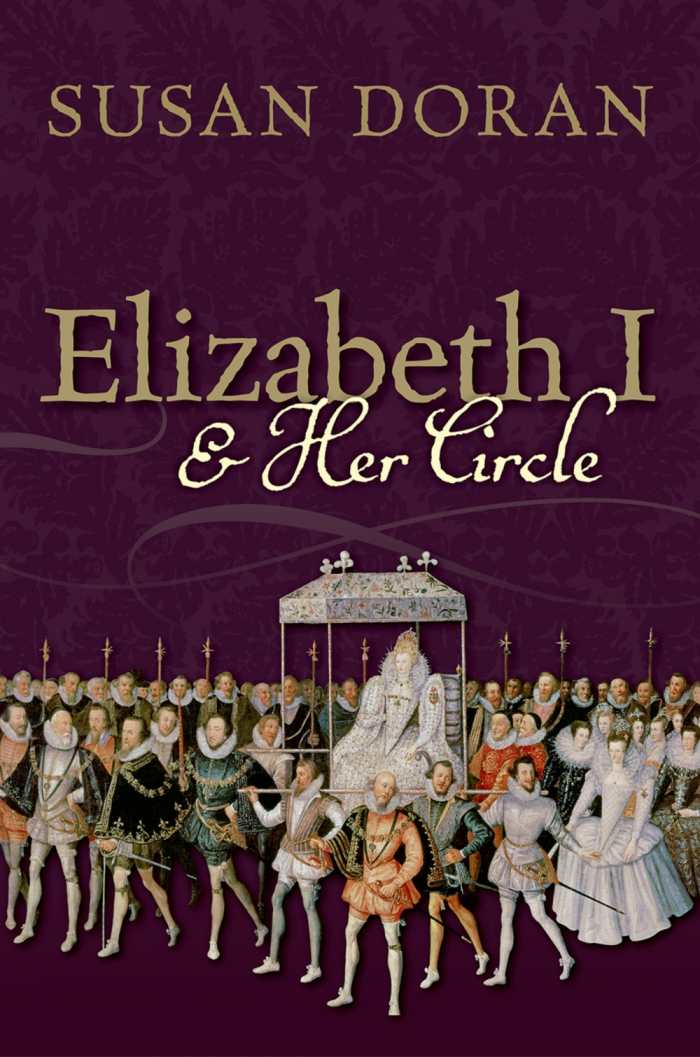
Susan Doran
Oxford University Press
Hardcover $39.95 (416pp)
978-0-19-957495-7
Buy: Local Bookstore (Bookshop)
The dramatic reign (1558-1603) of Queen Elizabeth I, known during her own times as the Virgin Queen, has spawned more than a dozen movies with her being played by the likes of Bette Davis and Cate Blanchett and, in old age, Dame Judi Dench. Even as her life provides a playground for screenwriters, she also figures in an uncountable number of novels, histories, and pseudo histories.
A goal of Susan Doran, a senior research fellow at Jesus College, Oxford, is to go beyond theatrical speculations and assess the personalities and politics of the Elizabethan era, remembered for its comparative stability, artistic achievements (think Shakespeare), and a lessening of religious tensions. She dismisses sexual speculations by noting that while the queen did indeed entertain courtiers, the intimacies were not sexual. “Indeed,” she writes, on the basis of exhaustive archival research, “it is highly unlikely that she had a sexual relationship with anyone.”
The reign of Elizabeth’s father, Henry VIII, was particularly stormy. Most notably, he brought to boil the bitter Catholic-versus-Protestant struggle that dominated British society by getting an annulment to his first marriage and marrying Anne Boleyn, Elizabeth’s mother. Henry, a harsh daddy if ever there was one, saw to Anne’s execution when Elizabeth was two years old.
Rather than the paranoia of her father, pragmatism held sway with Elizabeth. She largely avoided war and saw to the budget. She rewarded loyalty. She punished disloyalty, but rarely with death unless she felt she had to, as she did in the case of her half sister, Mary Queen of Scots, a challenger for the throne.
One leaves Doran’s book thinking that, rather than virginal, Elizabeth might best be characterized as one tough Tudor.
THOMAS BEVIER (May 27, 2015)
Spring 1865
The Closing Campaigns of the Civil War
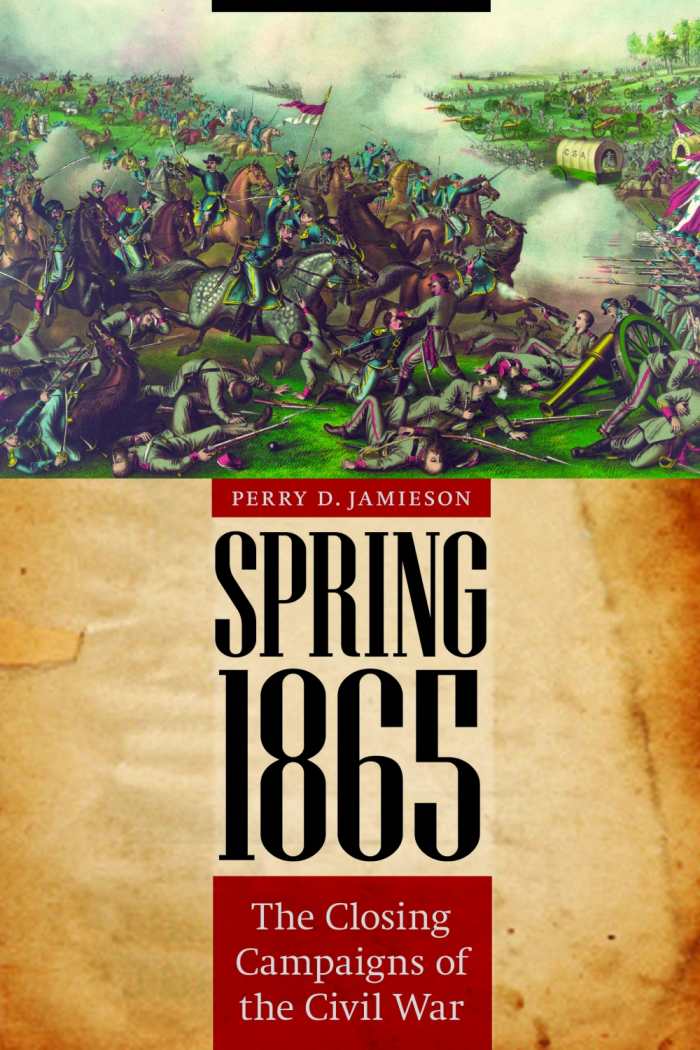
Perry D. Jamieson
University of Nebraska Press
Hardcover $34.95 (296pp)
978-0-8032-2581-7
Buy: Local Bookstore (Bookshop)
The South’s defeat was inevitable when, on a chilly Sunday April 3 morning in 1865, Confederate President Jefferson Davis’s prayers at St. Paul’s Episcopal Church in Richmond, Virginia, were interrupted when the church sextant handed him a letter from his secretary of war warning that Union forces would soon take the Confederate capital. A few hours later Davis fled, and on April 9, Confederate General Robert E. Lee surrendered at Appomattox.
Yet, as Perry D. Jamieson, senior historian emeritus of the US Air Force, observes as he writes about the final, bloody months of the war, April was among the cruelest. President Abraham Lincoln was assassinated on April 15. Davis would not accept the idea that the Confederacy was done, even as thousands of his soldiers were deserting and those who remained lacked even minimal rations. Hostilities continued, and it was not until August 20, 1866, that President Andrew Johnson announced that the war was officially over.
Jamieson’s focus is on the major battles in Virginia and the Carolinas, but he also addresses later battles to put down the remnants of the Confederate army in the Deep South and western territories. And he does it with detail and insight into the politics of the time to satisfy the most demanding Civil War buff.
THOMAS BEVIER (May 27, 2015)
Lincoln’s Billy
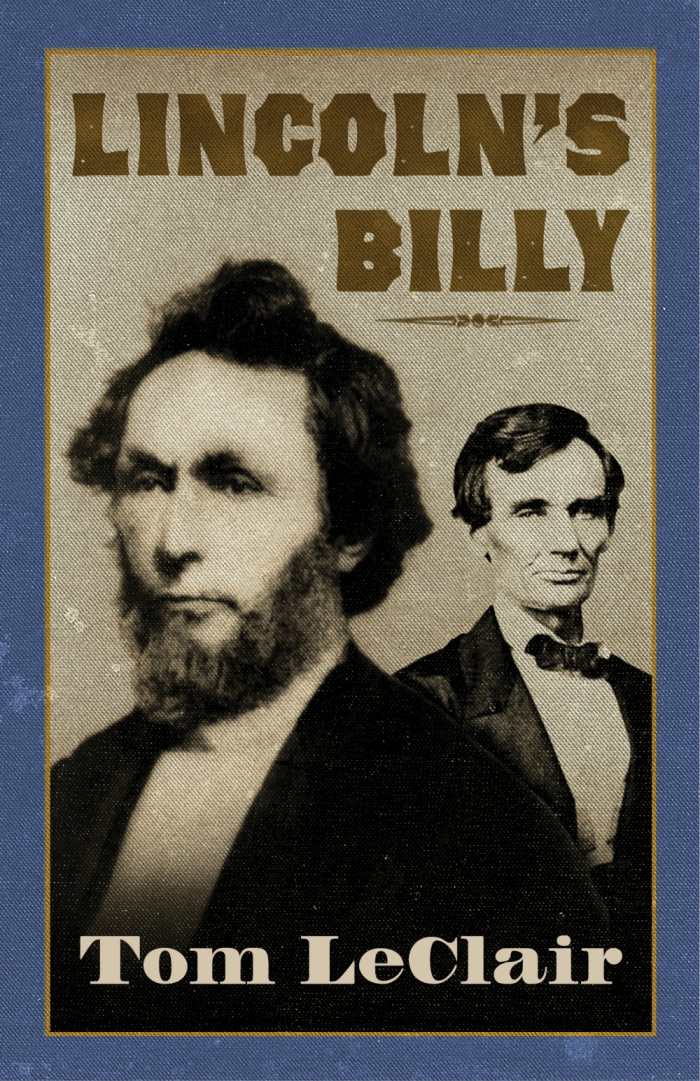
Tom LeClair
The Permanent Press
Hardcover $28.00 (176pp)
978-1-57962-408-8
Most of the authors who wrote any of the 15,000+ Lincoln books in existence would know immediately the full and proper name of the Billy in the title of this historical novel. He was William Herndon, who was the sixteenth president’s twenty-year law partner in Springfield, Illinois, and the person who provided insights and anecdotes that fuel the Lincoln legend to this very day.
After Lincoln’s assassination, Herndon, despite financial problems and on-again-off-again bouts with alcohol, retraced Lincoln’s life. He interviewed and corresponded with people who knew Lincoln from his hardscrabble childhood in Kentucky, to his Mississippi River and New Orleans adventures and through the Civil War, until his assassination on April 15, 1865.
LeClair is the author of five novels and a well-known literary critic. His Herndon’s dialogue catches the rustic ruses of their law partnership. For instance: “In the courtroom, Lincoln sometimes played the role of bumpkin. I, too, tucked my pants into my boots, chewed on a sliver, and said damn and hell, but our method was completely different. I was still Turkey Bill gobbling over every word and issue … Laconic Lincoln lounged about the courtroom as if it were a stable, sat on the table, dug earwax out of his ears, and used anecdotes to illustrate the arguments.”
With Lincoln’s Billy, LeClair provides an often overlooked glimpse of a relationship that, yet again, bolsters Lincoln’s everyman reputation and, beyond that, celebrates the qualities of brotherhood and loyalty.
THOMAS BEVIER (May 27, 2015)
Eighty-Eight Years
The Long Death of Slavery in the United States, 1777–1865
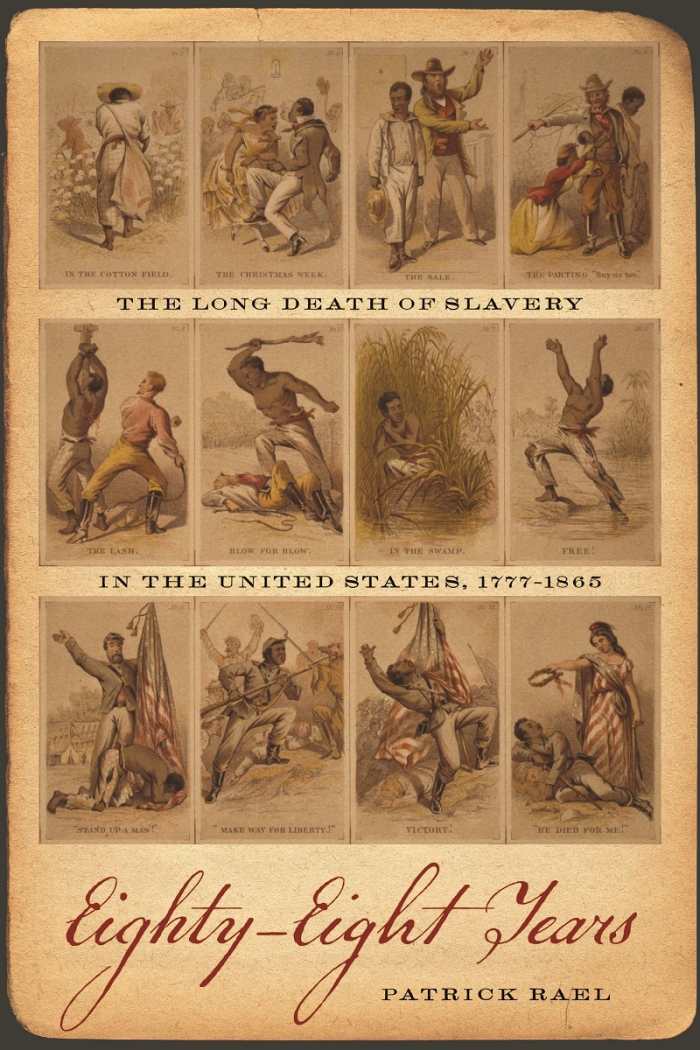
Patrick Rael
University of Georgia Press
Softcover $32.95 (380pp)
978-0-8203-4839-1
Buy: Local Bookstore (Bookshop)
Dr. Samuel Johnson, the famed British lexicographer and essayist, was at his acerbic best when he described those in Britain’s American colonies who bemoaned taxation without representation: “How is it that we hear the loudest yelps for liberty among the drivers of Negroes?” he wondered.
Patrick Rael, a history professor at Bowdoin College and the author of several books about blacks’ struggles for equality, notes that even though Johnson’s comment was but an aside in a pamphlet attacking revolutionists, it stands as a stinging indictment of the American hypocrisy that helped sustain slavery, even as it was abolished elsewhere.
The eighty-eight years Rael refers to are between 1777, when Vermont adopted its constitution outlawing slavery, and 1865, when the Thirteenth Amendment to the US Constitution giving equal rights to blacks was ratified. The process, he writes, was more protracted at other places in the Atlantic sphere such as Haiti, Cuba, Brazil, and other Spanish colonies largely because of the disproportionate political and economic influence of the Southern states, with their plantation economies that depended on slaves. Also, he argues, as capitalism evolved with its emphasis on the sanctity of property rights, slaves came to be largely regarded simply as chattel to be bought and sold in the marketplace.
After the Civil War, with its seven hundred thousand casualties, blacks had a brief moment before Reconstruction devolved into a time when blacks were again subjugated by the sharecropper system, Jim Crow laws, lynching, and the like. And so, Rael writes near the end of the book, “slavery died, racism persisted.”
THOMAS BEVIER (May 27, 2015)
The American South and the Vietnam War
Belligerence, Protest, and Agony in Dixie
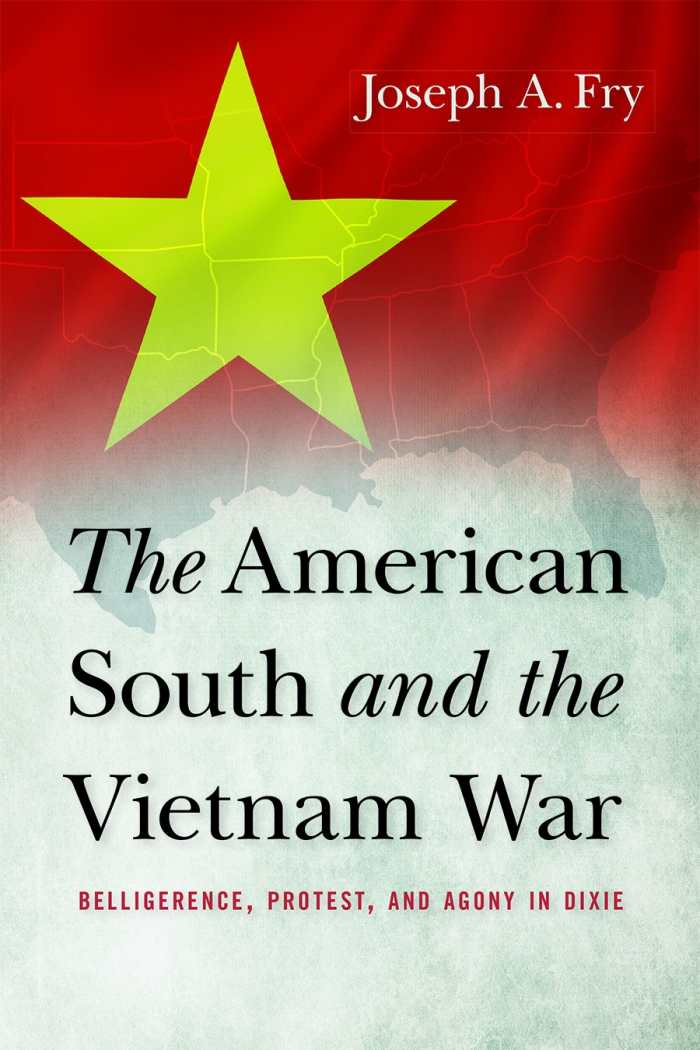
Joseph A. Fry
The University Press of Kentucky
Hardcover $40.00 (456pp)
978-0-8131-6104-4
Buy: Local Bookstore (Bookshop)
The South’s storied charm and civility are overshadowed by more hostile tendencies in this account of the role the region played in the Vietnam War. Joseph A. Fry, who has written extensively about the eleven states of the former Confederacy, argues that an inherent aggressiveness toward outside forces, such as “atheistic Communism,” and a hidebound sense of honor, contributed to what many have come to think of as the nation’s singular foreign-policy debacle.
He notes that legislators from the South, with a few notable exceptions, were key in providing the funding and political will to prosecute the war, and it was Lyndon B. Johnson of Texas, who vowed, even as his credibility crumbled, “I don’t want to be the first president to lose a war.” Secretary of State Dean Rusk was from Georgia, and General William Westmoreland was from South Carolina, and southerners served as soldiers in numbers disproportionate to their states’ populations.
Fry considers attitudes formed during slavery and its aftermath as a factor and cites comments about foreign policy down through southern history as evidence, including an editorial in the Wilmington, North Carolina, Morning Star about the proposal to make Hawaii a territory. “Dixie has a sufficient stock of mongrelism without taking in the nut brown islanders of the South Pacific,” the paper opined.
Fittingly, the past is alluded to in a quote at the end of the book by a Mississippi veteran: “Vietnam was much like the Confederacy … a lost cause with thousands of people dying for nothing.”
THOMAS BEVIER (May 27, 2015)
Moroni and the Swastika
Mormons in Nazi Germany

David Conley Nelson
University of Oklahoma Press
Hardcover $29.95 (432pp)
978-0-8061-4668-3
Buy: Local Bookstore (Bookshop)
This history of the Church of Latter-day Saints in Germany during Hitler’s murderous reign should be taken as yet another warning of how basic goodness—in this case religious faith—can be cruelly bent when it accommodates itself to an intrinsic evil. David Conley Nelson, who describes himself as part of a “typically large Latter-day Saint family,” is unsparing of his criticism of German Mormons and of subsequent efforts by the universal church to minimize the historical evidence of their involvement.
As other Christian sects, notably Jehovah’s Witnesses, were being persecuted, and the Jewish population was being decimated, the fourteen thousand German Mormons took refuge in the church’s Twelfth Article of Faith, which essentially requires cooperation with the civil government, no matter its stripe.
Nelson reports that German Mormons not only accepted Nazism but cheered it on. They prayed for German victory, served as guards in concentration camps, and purged Jewish references from their hymnals. And, by and large, the German Mormons were supported before United States involvement in World War II by the leader of the Church in Utah.
There is no gloss on Nelson’s telling of a dark, dark moment in Mormon history. During his years of research, he overcame resistance from the Mormon establishment, but it should be noted that without cooperation from members of the German-American Mormon immigrant community and Mormon historical institutions, his indictment would be less convincing.
THOMAS BEVIER (May 27, 2015)
Early Southern Sports and Sportsmen, 1830–1910
A Literary Antholgoy

Jacob F. RiversIII
The University of South Carolina Press
Hardcover $34.95 (231pp)
978-1-61117-397-0
Buy: Local Bookstore (Bookshop)
The dozen literate and usually affluent hunters and fishermen in the South during the nineteenth and early twentieth centuries whose writings comprise this anthology depict an environmental sensitivity that has been undervalued, Jacob F. Rivers III argues in his introduction. Most of them back up his contention, more or less, although it’s difficult to think of Davy Crockett (1786-1836), of Alamo fame, as an environmentalist when he brags of killing 105 Tennessee bears in less than a year.
More to Rivers’s point is William Elliott (1788- 1863), a member of South Carolina’s planter aristocracy, who stressed etiquette alongside the consequences of overhunting. “Thus thinking of the value of amusement in general, and of hunting in particular,” he wrote, “I cannot but perceive with regret that there are causes in operation which have destroyed … to the extent, that, in another generation, this manly pastime will no longer be within our reach.”
There is plenty here for those participants in the “manly pastime” who love to commune with nature but yearn for a successful hunting or fishing outing with maybe a sprinkle of down-home dialogue. Enter Alexander G. McNutt (1802-1848), a governor of Mississippi. He wrote hunting stories under a pseudonym, “Turkey Hunter.” One of his main characters was called Chuckey, who claims, “I walks the water, I out-bellars the thunder, and when I get hot, the Mississippi hides itself!”
THOMAS BEVIER (May 27, 2015)
Revolt at Taos
The New Mexican and Indian Insurrection of 1847
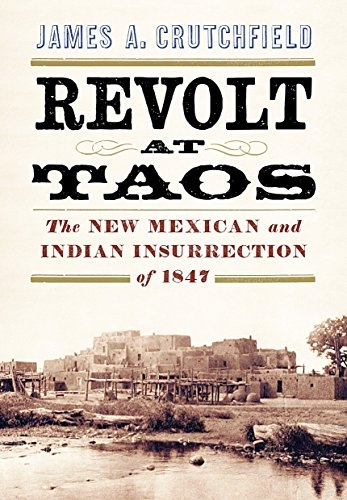
James A. Crutchfield
Westholme Publishing
Hardcover $29.95 (248pp)
978-1-59416-223-7
In 1847, Taos, New Mexico, in the parched hinterland of the nation’s newest territory, was about as remote as it got in America. It was not, however, an unlikely location for a revolt against America’s heavy-handed takeover of what had been the Republic of Mexico’s northernmost outpost.
It started on January 19, with the murder of the newly appointed governor of the territory, Charles Bent, by irate Mexicans and Indians, who went on to kill five more leading citizens. The revolt was quelled, with scores of casualties—including some who had sought refuge in a church—by US forces within a month. Some of the captured insurrectionists were summarily hanged.
Even though the revolt failed to wrest control from America, it focused attention, to President James K. Polk’s embarrassment, on the debate about whether the administration had exceeded its authority in claiming New Mexico. It also reverberated in Mexico City.
James A. Crutchfield states in his introduction that it is not his intent to be scathingly critical of America for the duplicity of its politicians and the alcohol-sodden behavior of the army. Still, he makes it clear that the revolt was in reaction to an overwrought pursuit of Manifest Destiny and a general contempt for the Indians and Mexicans who stood in the way.
THOMAS BEVIER (May 27, 2015)
Tom Bevier

